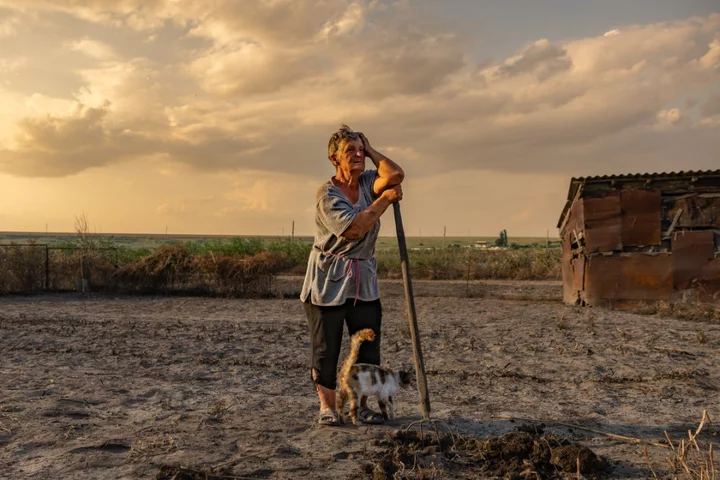
After the flood: The nightmare is just beginning for those left to rebuild after the Ukraine dam explosion
In a mud-soaked nightdress, the Ukrainian grandmother claws at the fetid water that has swallowed the steps down to her home in Kherson city. Frail and in shock, Antonia Shevchenko, 84 appears unaware of the futility of her attempts to try to drain the swamp drowning her house. Her daughter Svetlana, 64, marooned by the sweltering mud, tries to coax her to stop and calm down. Shelling roars in the background. It is the first time the pair have been back since they evacuated after the Nova Kakhokva dam blew up this month, unleashing the contents of one Europe’s largest reservoirs over southern Ukraine. The explosion - which Ukraine blames on Russia - sparked the worst ecological disaster on the continent in recent history and will likely impact global food security, according to the United Nations. In Kherson, the capital of the region, it killed dozens of people, submerged whole towns, drowned all the wildlife and turned this street into a canal. “We didn't even have time to get her clothes, we had to carry her in the slippers and nightie she is still wearing now,” says Svetlana in tears, as her confused mother repeats “It’s all just mud,” in the background. “It’s impossible to fix this. I feel nothing now. Everything is just empty inside. Now it’s all gone, we have nothing left," Svetlana adds. A few streets away Oksana Kuzminko, 70, who was also returning for the first time, picks her way through the devastation. “Welcome to zombie land,” she adds with a despairing shrug. Until recently the only way to navigate these streets was to steer a boat between the tops of the roofs of the submerged houses. Now the waters have receded, the terrifying scale of the damage and the work still to be done has been revealed. Sewage, mud, rubbish, dead animals, bits of masonry, and potentially land mines swirl together in the backyards of the partially collapsed houses. The area is still being pounded by Russian forces, stationed on the other side of the swollen banks of the Dnipro river. Anna Gatchecnko, 73, another elderly resident of this district, says the combination of flood waters and the war is “your worst nightmare”. “We survived the Russian occupation, the shelling and now this happened,” she says, wearing plastic bags she has tied to her feet in the toxic slush. “They took everything. My house, my belongings were the last things in this world that I had." The Kakhovka dam - essential for fresh water and irrigation in southern Ukraine - is located in a part of the Kherson region that Moscow illegally annexed in September and has occupied for the past year. The damage is so severe Ukraine has accused Russia of “ecocide” – believing Moscow’s forces blew it up in an attempt to prevent Kyiv’s troops from advancing in the south as they launched a counteroffensive. Moscow has vehemently denied the accusations and blamed Kyiv. Experts say the dam was so robustly built only an internal explosion could have caused such a catastrophic breach. The tearing floods have wiped out hundreds of towns and villages according to the United Nations, which has warned nearly a quarter of a million people have been left in need of drinking water. Downstream of the dam - towns and villages have morphed into polluted swamps where cholera has been detected. Upstream, the reservoir which once sustained swathes of agricultural land, has turned into a salty desert. Residents in those areas queue to get water from fire trucks under shelling. And the repercussions will be felt well beyond Ukraine’s borders, even potentially sparking global hunger. Ukraine - a major exporter of grains, oils and vegetables - was already struggling to export its harvest because of war. The ravages of flooding in one of the world’s most important breadbaskets will almost inevitably lead to lower grain exports, higher food prices around the world, and less to eat for millions in need. “The truth is this is only the beginning of seeing the consequences of this act,” Martin Griffiths, a United Nations aid official warned recently. It also raised fears about the stability Zaporizhzhia nuclear power plant, Europe’s largest, which relied on the waters of the now-dry Kakhovka reservoir to function. Rafael Grossi, head of the UN’s Atomic agency, which has unsuccessfully attempted to build a safety zone around the facility, was so concerned he travelled to the Russian-occupied plant. There he admitted it was "grappling with ... water-related challenges”. In Zaporzhizhia’s regional capital, Taras Tyshchenko, head of the Ministry of Health's Centre for Prevention and Disease Control, said if the Russians were capable of unleashing the waters over Kherson, they would have no qualms in taking out the nuclear power. After the dam's explosion, his health facility tests the air and waters across the region multiple times a day for radiation and contamination. So far they have detected cholera and remain on high alert for radiation. They have been through three rounds of training in the event there is a disaster at the nuclear power plant and have distributed potassium iodide tablets to those living within the danger zone. The damage from the destroyed dam is unfathomable, he says in front of the city’s main dock which is now dried out. The sweeping concrete jetty, which once hosted commercial water traffic, stoops forlornly over muddy puddles where his teams take water samples. “It could take well over a decade to fix the dam, refill the reservoirs and restore this region to normal," he adds grimly. "And that work can only really start after victory." In the interim cities, towns and villages along the Kakhovka reservoir will morph into wastelands if no solution is found. Deep fissures crisscross the cracked riverbeds where dead fish and molluscs slowly crisp in the sun. In one village, a forlorn fisherman drives a scooter across the desert scape in search of a pool of water. “Once the dam exploded we tried to build our own mini dams to try to retain some water, “ explains Vitaly Marozov, 29, who works at a 400-hectare farm producing vegetables and fruit just outside of the city of southern city Nikopol. He plays us a video of local volunteers building a makeshift barrier out of sacks and soil. “Now we are trying to dig wells but the water is salty," he adds. This is already destroying crops. Standing by a destroyed field of cabbages, dusted white with salt, he says they will be lucky if they can salvage a fifth of their total yearly yield. The damage he believes will cost their farm 22 million hryvnia, or around £500,000, and it will only get worse as the season progresses. “We are just one farm, this is the case all around this area. This will impact global food security unless someone does something drastic,” he continues. Back in the water-logged regions, volunteers deliver aid by boats to the communities now cut off from help. Others bring pumps to try to drain the pools of stagnant water from the worst-hit areas. But all it does is expose the irreparable damage done to the entire southern sweep of Ukraine. We find Olha Mosyk, 70, who was forced to swim to safety with a litter of newborn kittens, islanded by destruction in her home in the Mykolaiv region. Sodden muddy piles of dirt mark the remains of the walls of her house. “You need steel teeth to break Ukrainians. That won’t work on me,” she says, pulling up the remains of rotten potatoes from her destroyed field which is the same tyranny of blackened mud. “All we can do is try to pull ourselves together,” she adds with a pause. Back in Kherson city, Svetlana tries to comfort her mother Antonia who is on the cusp of a panic attack. “How do I feel? Crying all the time. My whole body is shaking,” the 84-year-old says faintly, her red floral nightie a flash of colour in the grey water. “It’s all flooded. My whole life is underwater.” Read More Zelensky accuses Russia of plotting ‘radiation leak’ attack at Zaporizhzhia nuclear plant Ukraine's president tells other countries to act before Russia attacks nuclear plant Ukrainian soldiers rescue Russian troops left to drown after Kakhovka dam destruction Russia-Ukraine war live: Moscow ‘arrests General Armageddon’ over Wagner rebellion Recapping the revolt in Russia, through the words of 4 presidents and a mutinous warlord
2023-07-03 23:21
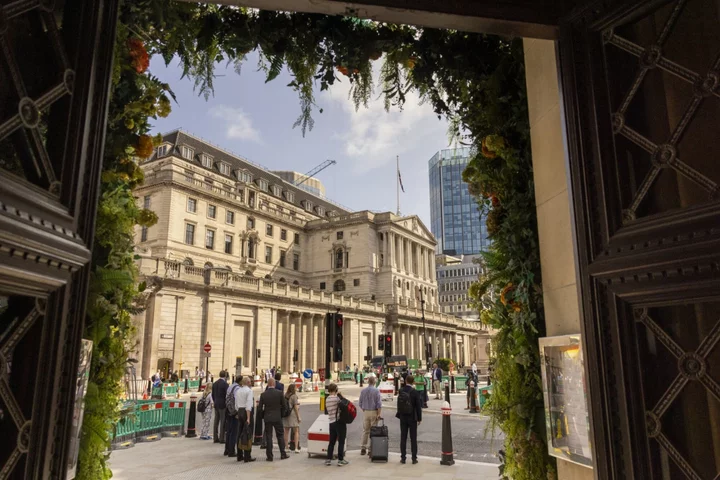
BOE Newcomer Greene Warns Inflation Won’t Automatically Fall
The Bank of England’s incoming rate setter Megan Greene cautioned against complacency in the fight against inflation. “It
2023-07-03 21:45

European Stocks Muted After First-Half Gains; Energy Shares Rise
European stocks were muted on Monday following gains in the first half of the year as cyclical sectors
2023-07-03 21:20
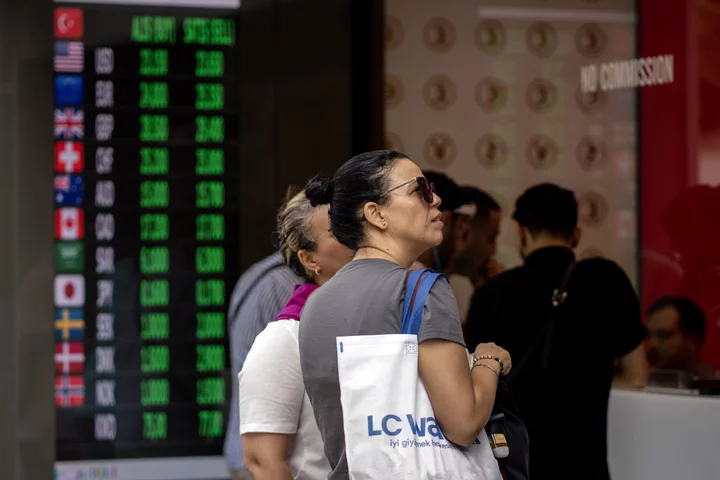
Turkish State Banks Resume Supporting Lira as Rout Deepens
Turkey’s state-run banks re-entered the foreign-currency market on Monday, selling as much as $1 billion by midday to
2023-07-03 20:47
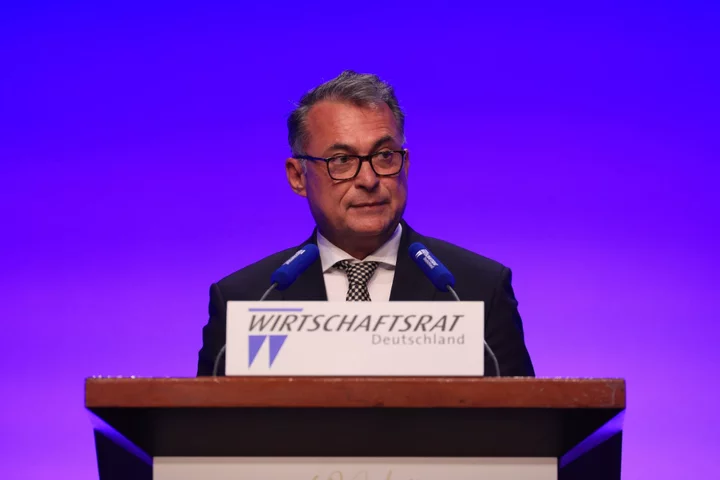
ECB’s Rate-Hiking Campaign Has ‘Some Way to Go,’ Nagel Says
The European Central Bank’s historic series of interest-rate increases isn’t finished yet as upside risks to the inflation
2023-07-03 20:29
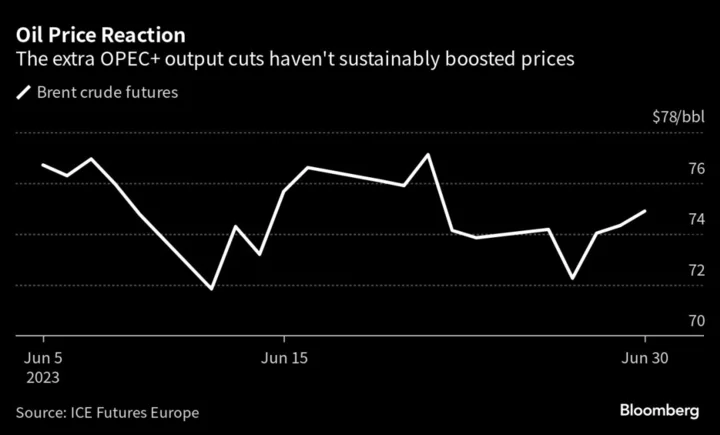
Saudis and Russia Extend Oil Supply Cuts, Bolstering Prices
Saudi Arabia will prolong its unilateral oil production cut by one month, keeping a lid on supply amid
2023-07-03 19:24
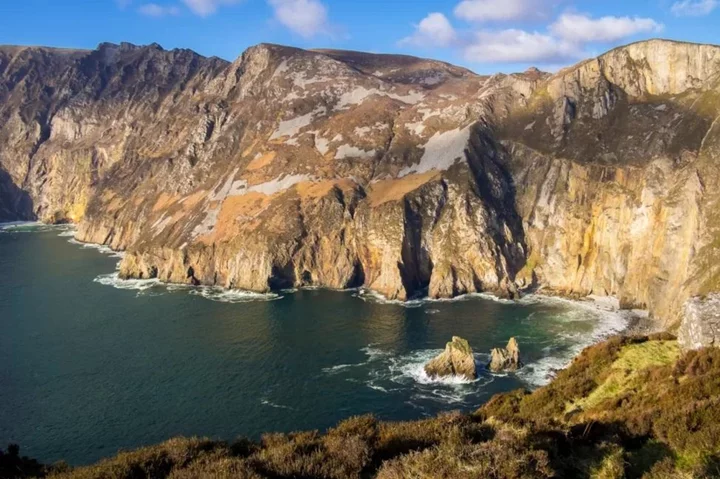
Body recovered at Slieve League in County Donegal
The sea cliffs were closed for most of last week as police investigated an alleged assault.
2023-07-03 19:20
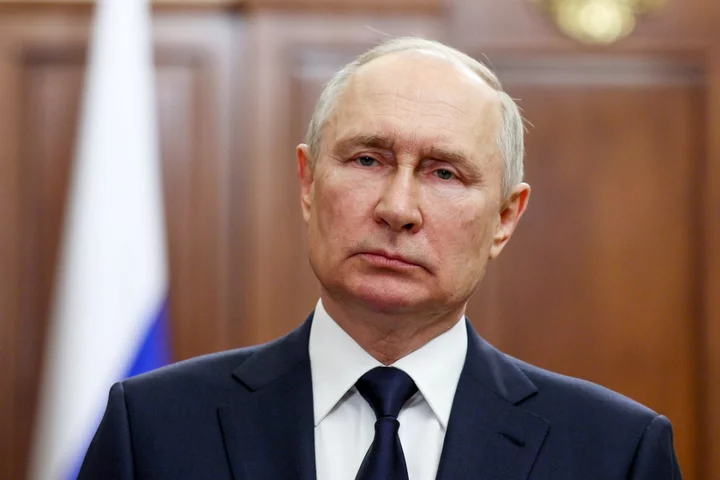
Ukraine-Russia war – live: Putin’s forces ‘suffer losses during heavy fighting near Bakhmut’
Ukraine’s forces have gained ground near Bakhmut amid “heavy fighting,” officials said on Monday. Deputy defence minister Hanna Maliar said that Russian forces were attacking in the Lyman, Avdiivka and Mariinka directions in the Donetsk region. “Heavy fighting is going on there now,” Maliar said on the Telegram messaging app. Ukraine had reclaimed nine square kilometres over the past week along the eastern front “as a result of improving the operational (tactical) position and aligning the front line”, Maliar said. In the south, Ukraine has regained 28.4 kilometres of territory, bringing the total area of re-captured territory along that front to 158.4 kilometres, Maliar added. Over the weekend, Russia said its forces had repelled Ukrainian attacks near villages ringing Bakhmut and in areas further south, particularly near the hilltop town of Vuhledar. They also reported success in containing Ukrainian troops in the northeast. It comes as Ukrainian writer and war crimes researcher Victoria Amelina has died after succumbing to her injuries from the missile attack on a Ukrainian pizzeria in Kramatorsk. The 37-year-old, among the dozens of civilian casualties in the Russian missile strike, had been admitted to a hospital in Dnipro last Tuesday. Read More Russia launches first drone strike on Kyiv in 12 days Why are Russian and Belarusian players allowed back at Wimbledon? Belarusian Aryna Sabalenka says she won’t discuss the Ukraine war while at Wimbledon A week after an armed rebellion rattled Russia, key details about it are still shrouded in mystery
2023-07-03 18:25
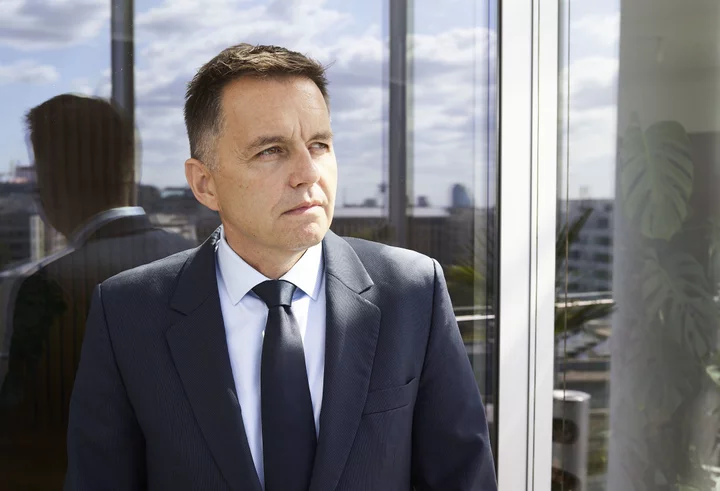
ECB’s Kazimir Stands Trial in Slovakia on Bribery Charges
The corruption trial of European Central Bank Governing Council member Peter Kazimir began on Monday, threatening embarrassment to
2023-07-03 17:51
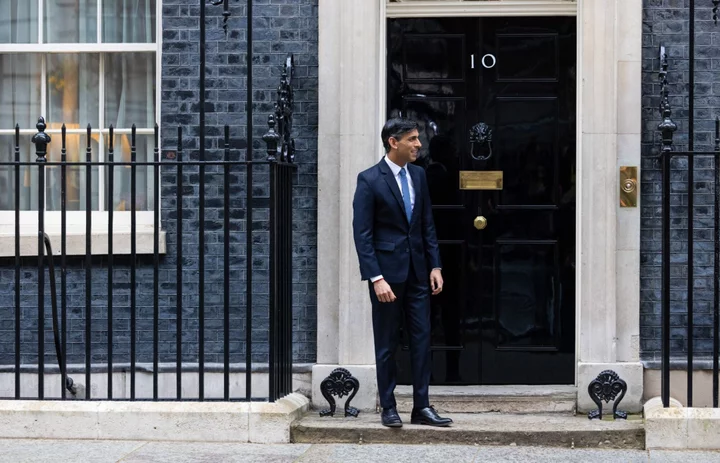
Sunak Faces Three Weeks of Danger in Bid to Revive Tories
Rishi Sunak faces an awkward three-week political test that is likely to have a lasting impact on his
2023-07-03 17:21
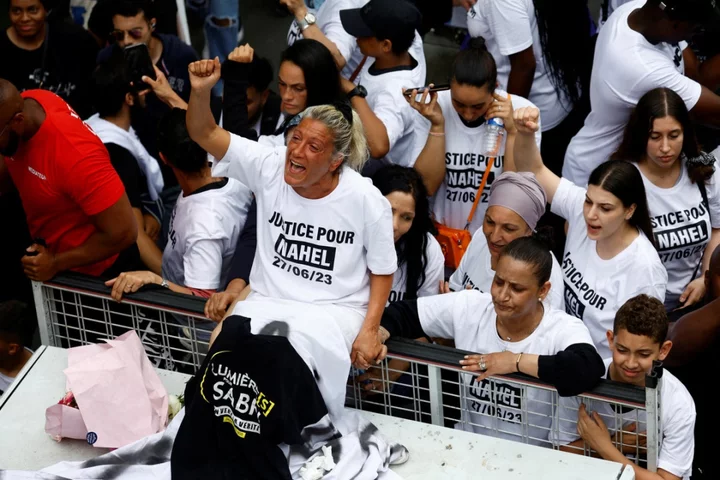
France riots: Aunt of teenager shot dead by police in Paris pleads for violence and looting to end
The aunt of a French teenager shot dead by police last week has urged the “violence to stop” and her nephew’s death to trigger “real change” peacefully, in a heartfelt interview with The Independent. Hatifa, who turned 47 on Saturday, the day of her nephew’s funeral, described Nahel Merzouk, 17, as a “loving teddy bear” who had big ambitions, liked to write rap lyrics, and was “dedicated” to his mother. She said the family – who are of Algerian and Moroccan origin – had been overwhelmed by the national and global response to his killing last week by a police officer during a traffic stop in a west Parisian suburb. Thousands of people have taken to the streets across the country, calling for an end to police impunity and discrimination after a video of the incident was shared online. But it has also ignited violence with multiple cities ablaze as looters ransacked dozens of shops and torched thousands of vehicles, according to the interior ministry. On Sunday morning a group of rioters ram-raided the home of a Paris suburb mayor, set the car alight and launched fireworks at his wife and young children. “I ask that the violence stop. I don’t want people to get hurt. The family is very much against the violence,” Hatifa, a mother-of-four herself, told The Independent. “We knew Nahel’s killing would have some impact but not this much. I think there are mass protests because so many mothers, like my sister, have had enough of being scared all the time.” She said the family were “very grateful” for the global support, which had helped as they dealt with “deep grief”. “But I hope that Nahel’s death is going to trigger some kind of change that means this never happens again,” she added. “At the end of the day, a grown-up shot a child.” Nahel was fired at by a police officer during a traffic stop in the west Parisian suburb. The perpetrator of the shooting justified his action by saying the teenager refused to comply and the police said he was “known” to them. But the incident was caught on mobile phone footage and showed Nahel driving away from the officers before one fired at him. His family believe he was likely terrified, and so panicked and drove off. France’s human rights ombudsman has opened an inquiry into the killing and the officer involved has been charged with homicide. Outraged at the murder, and the apparent efforts by the police to paint Nahel as a troubled teenager wanted by the law, has seen thousands take to the streets across the country. But that has spiralled into violence in many areas. Emmanuel Macron, facing the most severe challenge yet to his presidency, deployed 45,000 officers, including elite anti-terrorism units, in a bid to end the unrest. Police unions, meanwhile, have declared they are “at war” with “savage hordes of vermin”. More than 3,000 people have now been arrested across the country, with curfews imposed and public transport curtailed as open street battles raged between protesters and police, and looting became rampant. Hatifa said that the anger in the disenfranchised banlieues – or city suburbs – had been simmering for a while because of the endemic problem of discrimination in the police force. The youths, including Nahel, are regularly stopped by police, an action that scares them and heightens tensions, she added. “I don’t have all the answers to fix this. Racism and discrimination within the police has to stop. I know policemen are reaching their wit’s end and are taking their frustration out on young people. “But it has to stop, young people don’t like police, the police should be defending us not killing us,” she added. Hatifa’s words echo those of Nahel’s grandmother who also called for calm in an interview with French TV channel BFMTV on Sunday. “Don’t break windows, don’t smash up schools, don’t smash up buses. Stop it, they’re mums on buses, they’re mums walking outside”, the grandmother begged. “Nahel is dead. My daughter had just one child, she’s lost, it’s over, my daughter has no life left. And they made me lose my daughter and my grandson.” Hatifa said the whole family was concerned about the mental health of Nahel’s mother, Mounia, who has been thrust into the international limelight. “My sister is focused entirely on the loss of her son, her only son. I am scared that she might make a mistake in her loneliness and solitude when this quietens down,” she added. The officer who fired at Nahel has been taken into pre-trial custody, which French criminal law professors told The Independent was unprecedented. But many, including the family, fear that he may still be released. Nahel is the 16th driver to be shot at a traffic stop since the start of 2022, experts have told The Independent. The difference this time is that it was caught on camera. Hatifa said they were concerned by the impunity in the police force and hoped the officer, who has been detained on charges of homicide, is convicted and jailed. “It would be a disaster if, after all that has happened, nothing changes and for this person to walk free. Young people in my neighbourhood go to prison for much less,” she said with a shake in her voice. “We didn’t ask for a policeman to wake up one morning and put a bullet through my nephew’s heart. “I can’t breathe at night – I have never felt such pain. Nahel never hurt anyone.” Read More Paris protesters ram burning car into mayor’s home and leave family injured in ‘assassination attempt’ Paris shooting: Where are the riots in France and why are they happening? Travellers to France advised not to cancel trips but to avoid cities at night AP News Digest 3 am Paris protests ease as killed teen’s family call for peace – France riots live Where are the French riots and why are they happening?
2023-07-03 17:19

AstraZeneca Drops on Concern Over Results From Lung Cancer Drug
AstraZeneca Plc shares fell as results from a high-level study of a new cancer medicine raised concern the
2023-07-03 15:24
